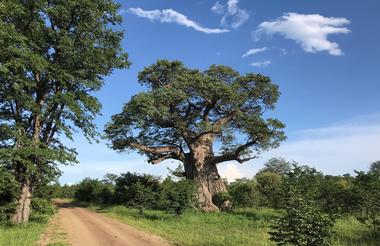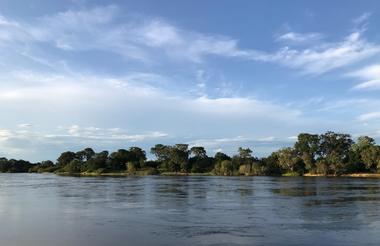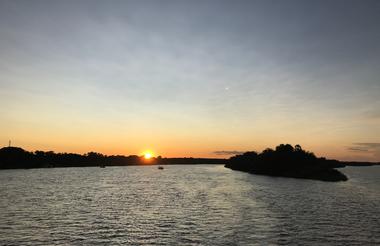Mashatu Game Reserve is a large, privately owned reserve set in the south eastern corner of Botswana, forming part of the greater Tuli Game Reserve. The diverse habitats within the reserve provide refuge to an amazing array of wildlife. Taking its name from the sacred Mashatu or Nyala Berry tree, Mashatu Game Reserve is also referred to as Land of Giants, being home to the biggest herd of elephants found on private land on the entire African continent. All of Africa’s predators, numerous antelope species and bird life abound in the reserve. Mashatu offers day and night drives conducted by professional, experienced guides, many of whom have been in the employ of Mashatu in excess of 12 years. Additional exciting experiences offered include walking, mountain biking and horseback safaris. The specialised photographic safaris offered by Mashatu have drawn great interest from around the world, with four types of hides that cater to specific areas of photographic interest such as elephant viewing and birding. Mashatu Game Reserve is undoubtedly an incredible destination suited to every level of safari traveller ranging from families to adventurers, whilst maintaining the intimacy of a top safari getaway.

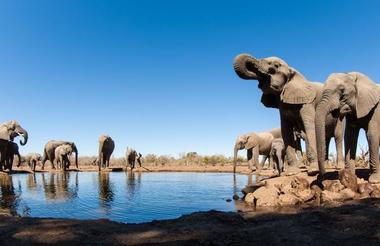

The Okavango Delta is where the wild things are: an immense, waterlogged oasis alive with elephants and birdlife, adrift in the middle of Kalahari sands. The real magic of the Delta lies in its water, trickling through from far away highlands, and spreading across the channels and floodplains.
During winter in the Kalahari, when the sun has baked the earth bare and turned the desert its driest, water fills the Okavango; transforming the floodplains into a Noah’s Ark of African wildlife.
As the water brings life to the delta, its local residents shape and recreate it. Termites slowly build mounds into islands, germinated with palm trees by passing elephants. Waterways open and close on the whim of wide-bottomed hippos, carving out channels where they crash through reeds, and leaving room behind them for exploration by mokoro.
The Okavango has many faces, which change throughout the year, prompted by that most unpredictable diva of all: the weather. Water levels rise and drop, expanding and shrinking islands, while animals move where the life is easiest and the grass greenest. In a few days, a sandy road driven by vehicle can become a waterway of unknowable depth, prompting a safari by boat instead.
Where and when you stay in the Okavango Delta will hugely influence what you do in the bush each day, the animals you’re most likely to see and finally, the safari experience you’ll have.
The delta’s watery heart is best discovered by mokoro through shallow channels and floodplains, as well as crossing the islands on foot. For less water and more of the big game, visit a camp on its drier edges (including Moremi Game Reserve and the Khwai Community Area), jump on a vehicle and seek out the animals hiding in the woodlands.
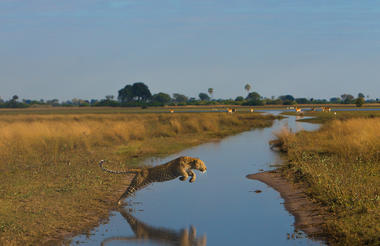
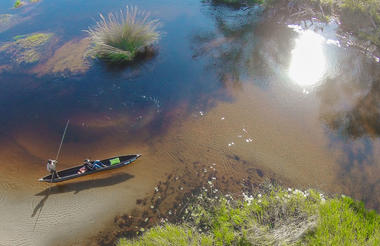
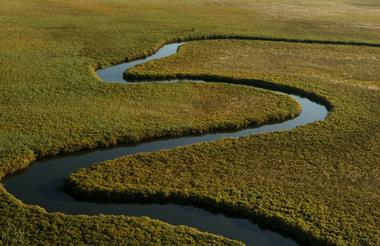
Zambezi National Park is a National Park located upstream, just 5km from Victoria Falls on the Zambezi River in Zimbabwe and comprises 40km of Zambezi River frontage. It was split off from Victoria Falls National Park in 1979 and is 56,000 hectares (140,000 acres) in size. The park is bisected by a road to Kazungula, dividing it into a riverine side and a Chamabondo Vlei side. Most of the park is within the ecoregion of Zambezian and Mopane woodlands, while a small portion in the south is within the Zambezian Baikiaea woodlands.
The Zambezi National Park plays host to a wide variety of larger mammals including African elephant, lion, Cape buffalo and leopard. In addition to these charismatic members of the "big 5" there are herds of sable antelope, common eland, common zebra, Southern giraffe, greater kudu, waterbuck and impala. In addition, many species of smaller wildlife can be seen here.
